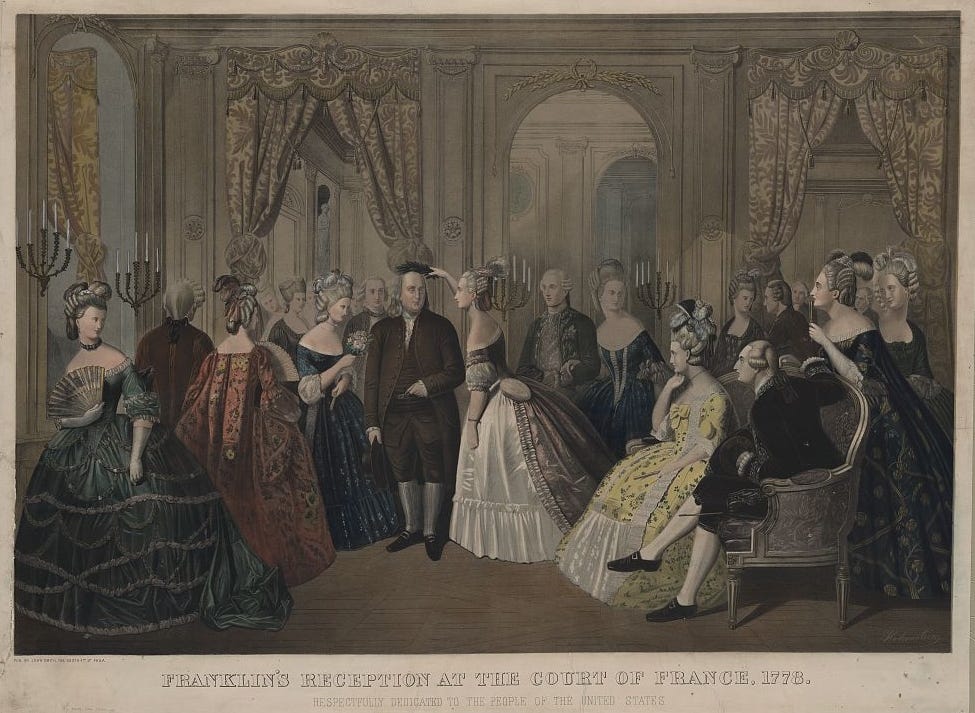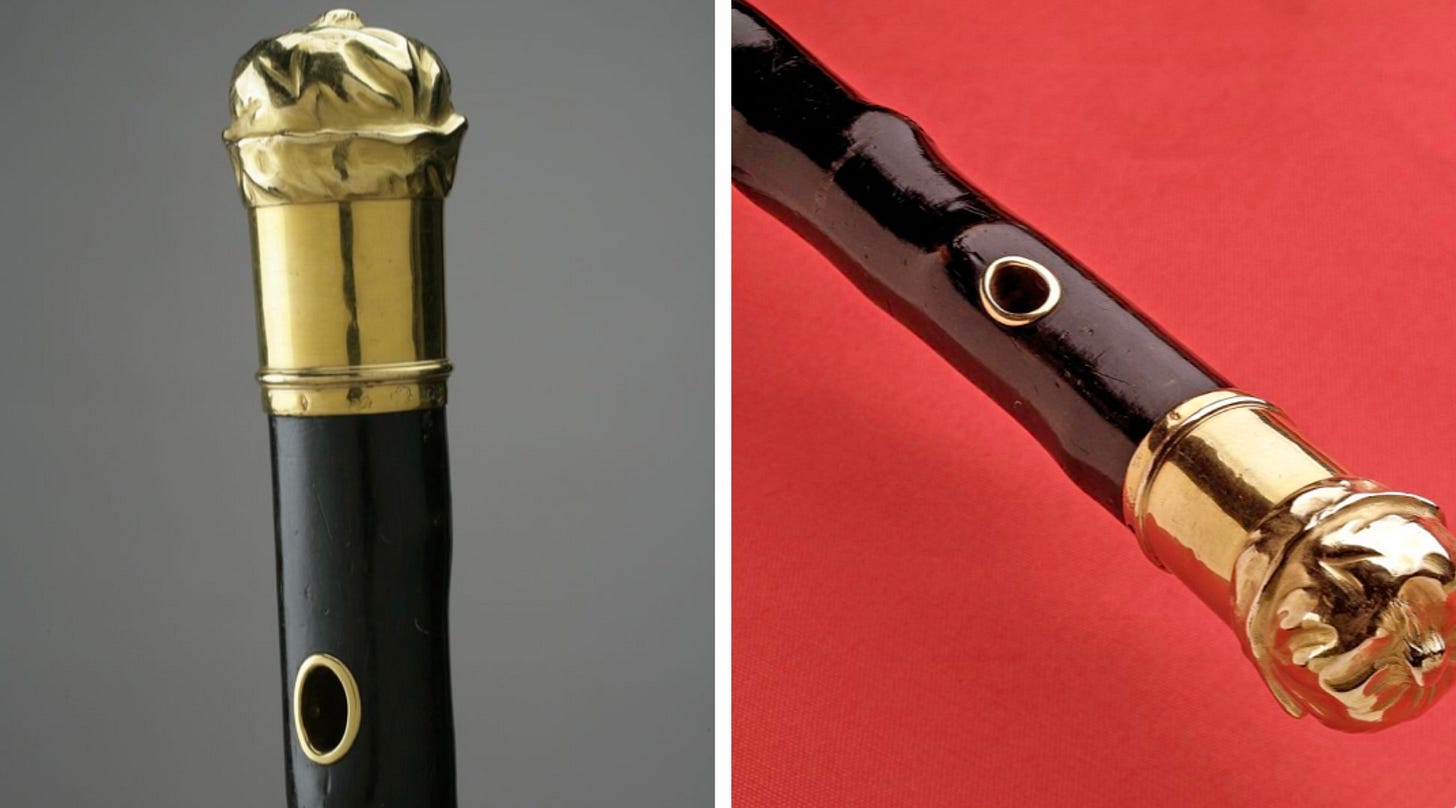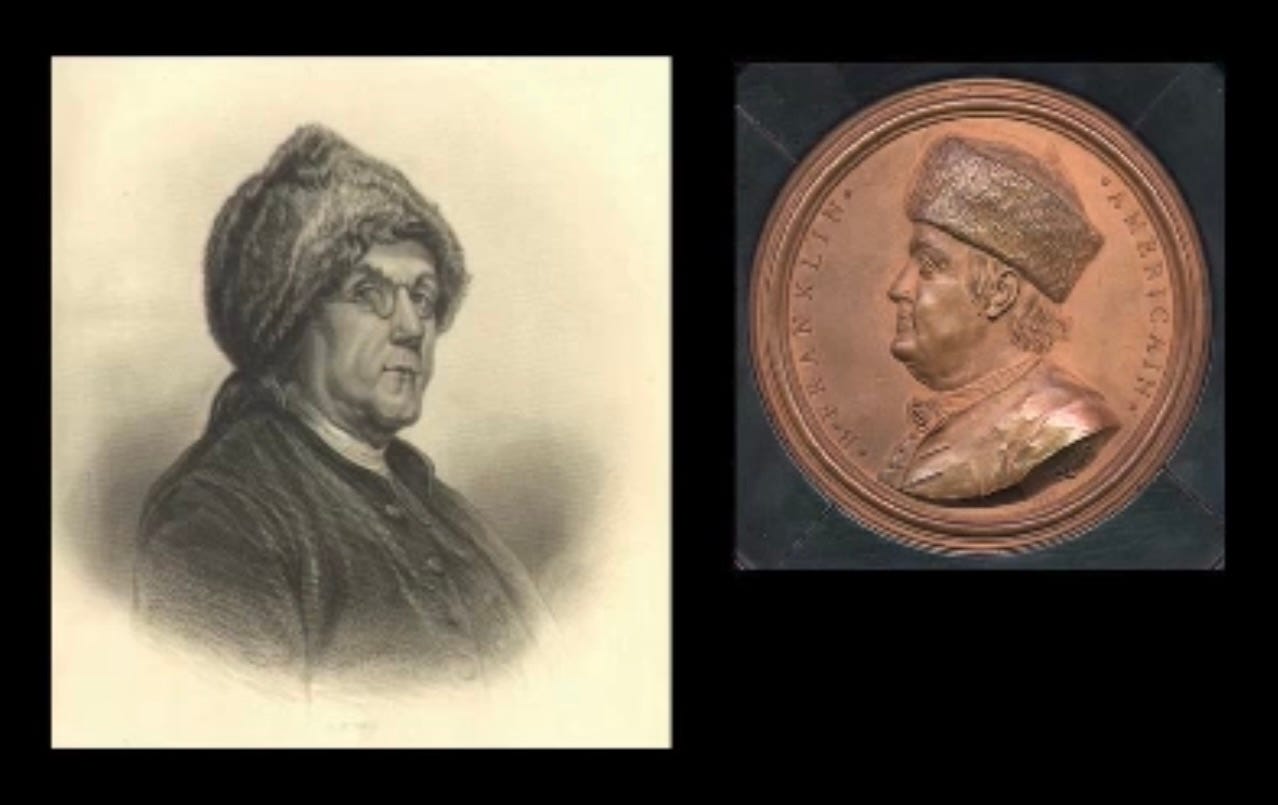America! (in one sentence)
How the gift Ben Franklin passed down to George Washington defines America (still)
By Michael Golden
When John Hancock put his "John Hancock" on the Declaration of Independence, he was 39 years old. James Madison was 25, Alexander Hamilton was 21, and James Monroe just 18.
But there was one famous signatory who was far older at the time of America’s birth. Benjamin Franklin, who was akin to a father to the Fathers, was 70 years of age in 1776.
Three years later, Franklin became the first minister (ambassador) to represent the United States in France — or any other country for that matter. Not only did Franklin persuade the French to support the Revolutionary War, he also negotiated the Treaty of Paris that confirmed the peace between Great Britain and the US.
In 1790, three years after he’d argued for and signed the Constitution, Ben Franklin died at the age of 84. He was known the world over, not only as a statesman, but as an author, writer, scientist, inventor, political philosopher, printing magnate and newspaper publisher. And then there was that electricity thing.
But before he passed, Franklin included a wish in his will that bequeathed a special gift to the man who at the time was reluctant to become America’s first president:
“My fine crab-tree walking stick, with a gold head curiously wrought in the form of the cap of liberty, I give to my friend, and the friend of mankind, General Washington. If it were a Scepter, he has merited it, and would become it.”
Over the centuries, Franklin’s walking stick has become an iconic historical artifact of the Revolutionary generation. But the truly interesting story about the cane is how he got a hold of it in the first place, its secret symbolism, and what his last words to Washington really meant.
Franklin was a beloved American figure during his time in France. After the British finally surrendered to the Continental Army in Yorktown — assisted by 10,000 French troops and 29 of their warships — the Duchess of Deux-Ponts, Madame de Forbach, gifted the walking stick to Franklin.
Though Madame de Forbach may have sincerely been congratulating Franklin with her present, she also had a vested interest in America’s victory: One of the Duchess’s sons was a commander who led 400 French soldiers in one of the final attacks on the British at Yorktown.
On its face, it’s a fine enough looking walking stick. What makes it special is the small circular cap on top of it. If you look closely enough, it may resemble something — like a hat. A fur hat.
With his nearly bald head, Franklin seemed to always be chilly when he was in France, so he started bringing with him a Davy Crockett-style fur hat. The French went wild for it!
Though many American men at that time followed European custom by wearing powdered wigs, the unfolding French Revolution made the accessory seem even more aristocratic. With her gesture of customizing the top of the stick, Franklin knew that the Duchess was making a statement of tribute to America. This is why he wryly referred to it as “the cap of liberty.”
But it was really in his second sentence that Franklin drove home the difference between England’s monarchic form of government and the nascent democracy that the United States was forging.
When Franklin wrote “if it were a Scepter” — he meant that it was not a scepter. Unelected kings held scepters, and no matter how imperfect America was in its infancy — or would become in its future — it would be the power of the vote that determined our political leaders.
It should never be forgotten that Franklin and Washington, amongst other Founding Fathers, were slaveowners. Of the two, only Franklin would make a public attempt at pursuing abolition before he died.
Yet the early form of democratic government that both men stewarded eventually matured into a system that was capable of advancing essential human and civil rights — when pushed to do so by the people.
As we celebrate this 4th of July, more than 230 years after Franklin wrote that brief codicil into his will — and in the wake of a string of highly controversial Supreme Court decisions — there are two things that I think are worth keeping in mind:
In Moore v. Harper last week, the Supreme Court ruled that state legislatures may not unilaterally manipulate or overturn election results, which was attempted in 2020. State courts cannot be evaded.
Regarding other recent SCOTUS decisions, no matter which side of a case one favors, Americans still have the right to vote for: A) A president who signs or vetoes legislation and appoints judges (subject to Senate advice and consent), and; B) Members of the House and Senate.
I confess that it feels almost ironic standing up in this space for a system of elections that I have railed on for years as being substantially rigged — specifically in Congress — and therefore monumentally lacking in effectiveness.
But of course this is part and parcel of the larger point: As flawed as our representative democracy is in 2023, we all still do have a say in it. And when we believe that our “say” — our vote — has been dangerously enough diluted, we have the power to speak out about it or take action to correct it.
To paraphrase Franklin: No autocrat gets to decide the rules that govern our lives. And as frustrated as we may become with a system that often feels stacked, having the freedom to take steps to reform it is what defines the very American independence that we celebrate.
Spark up the fireworks!








